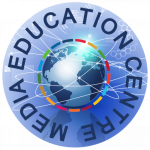
The Media Education Centre advances sustainable social change by combining research, practice, and coalition‑building to strengthen digital inclusion, civic education, and peace building across Europe and the Western Balkans. Operating with Advisory status at the United Nations Economic and Social Council (UN ECOSOC), we connect cultural heritage and contemporary policy to produce scalable, measurable outcomes that directly support our priority areas: Peace, Development, and Education.
Our work explicitly aligns with the UN Right to Development framework and the principles articulated by the International Patriotic Pact Organization (IPPO) at the UN IPPO Forum in Geneva. IPPO’s emphasis on the indivisibility of development and peace, national sovereignty, multilateral cooperation, and strengthened digital governance complements our mission: ensuring that ethical, inclusive digital transformation becomes a vehicle for equitable development, social cohesion, and lifelong learning across nations and communities.
Strategic Role in the All Digital Summit, Belgrade, Serbia 2026
The Centre serves as a strategic convenor and delivery partner for the All Digital Summit 2026, leveraging our UN ECOSOC Advisory status and active engagement with IPPO processes to amplify policy reach, attract institutional partners, and enhance partner value by linking summit outcomes to recognized UN frameworks and cross‑network policy platforms. Our priorities for the Summit and follow‑on work are:
- Peace — advancing community‑led peace building, cross‑border dialogue, and cultural memory initiatives that reduce conflict drivers and foster reconciliation.
- Development — promoting the UN Right to Development through inclusive digital policies, capacity building, and pilot programs that expand economic opportunity and social resilience.
- Education — strengthening media and digital literacy, reskilling pathways, and lifelong learning systems that equip citizens for ethical participation in the digital age.
By embedding IPPO’s call to treat development and peace as indivisible, the Summit and our laboratories offer concrete pathways from dialogue to funded action. This approach enhances partner attractiveness by offering policy‑aligned credibility, multi‑network dissemination, and demonstrable routes from participation to measurable development and educational impact.
Partnership Networks and Strategic Alliances
We convene and collaborate across key regional and international networks, including All Digital, ECFA, EAVI, International Cities of Peace, International Network of Museums for Peace, Danube for Peace, and Fredens Hus twin‑city and peace building partnerships. Our UN ECOSOC Advisory status strengthens these alliances, enabling joint programming, cross‑border pilots, and elevated policy visibility for partners and supporters.
The Seven Laboratories and Deliverables
Each laboratory operates as an applied research and prototyping node supported by an expert Advisory Council and a clear pipeline from evidence to funded replication:
- Media Laboratory — media and information literacy, curricula, fact‑checking ecosystems, counter‑misinformation campaigns.
- Digital Laboratory — AI literacy, data ethics, cybersecurity basics, inclusive XR experiences, and digital wellbeing measurement.
- Peace Laboratory — community peacebuilding, museum and memorial programs, transnational reconciliation toolkits.
- Health Laboratory — digital mental health interventions, public health communications, and resilience toolkits.
- Social Laboratory — inclusion models for underserved groups, participatory municipal services, and social capital measurement.
- Environmental Laboratory — climate communication, sustainable event standards, and citizen science pilots.
- Economic Laboratory — reskilling curricula, entrepreneurship pathways, and SME‑focused incubation models.
Each lab produces pilotable interventions, evaluation briefs, and partnership‑ready proposals aligned to Peace, Development, and Education objectives.
Values, Governance, and Impact Orientation
The Media Education Centre adheres to a rights‑based, participatory governance model. We prioritize: human rights and inclusion, transparency and accountability, sustainability and social responsibility, non‑violent democratic engagement, and pluralism and cross‑cultural dialogue. Our impact metrics include beneficiary reach, pilot replication rate, policy citations, partner activation metrics, and demonstrable contributions to UN sustainable development goals. Governance is overseen by an Advisory Council across the seven laboratories and subject to public reporting and independent evaluation.
Invitation to Collaborate
Join us to co‑create measurable, fundable solutions that scale from Ložionica to the region and beyond. We welcome partnerships on sponsorship, exhibitor programmes, laboratory pilots, and policy co‑creation tied to the All Digital Summit 2026 and UN development frameworks. For tailored engagement packages, co‑branded impact pathways, or UN ECOSOC policy alignment opportunities, contact our partnership team to design a collaborative route to lasting impact.


